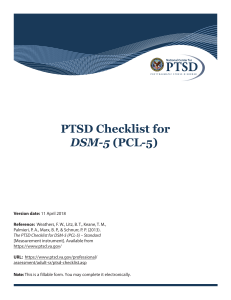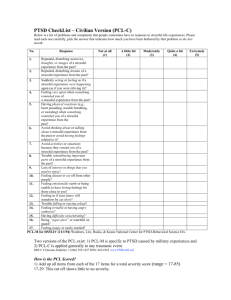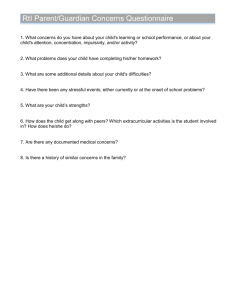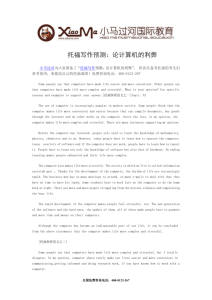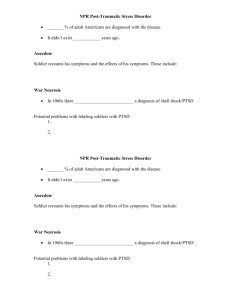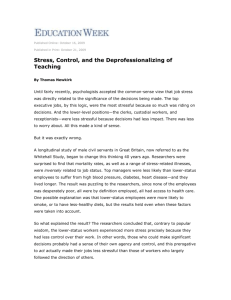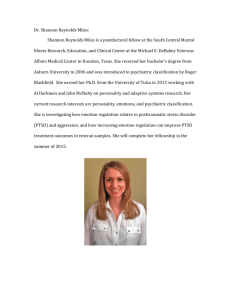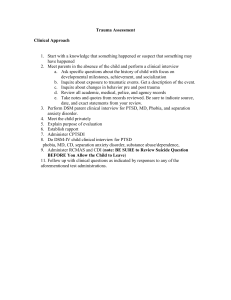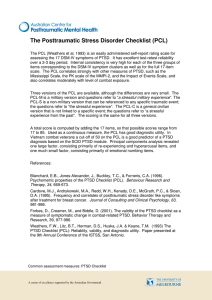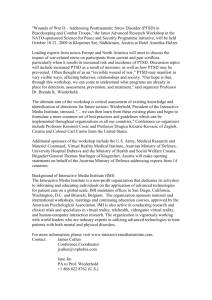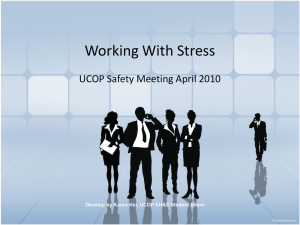Stress Vulnerability Self-Test
advertisement
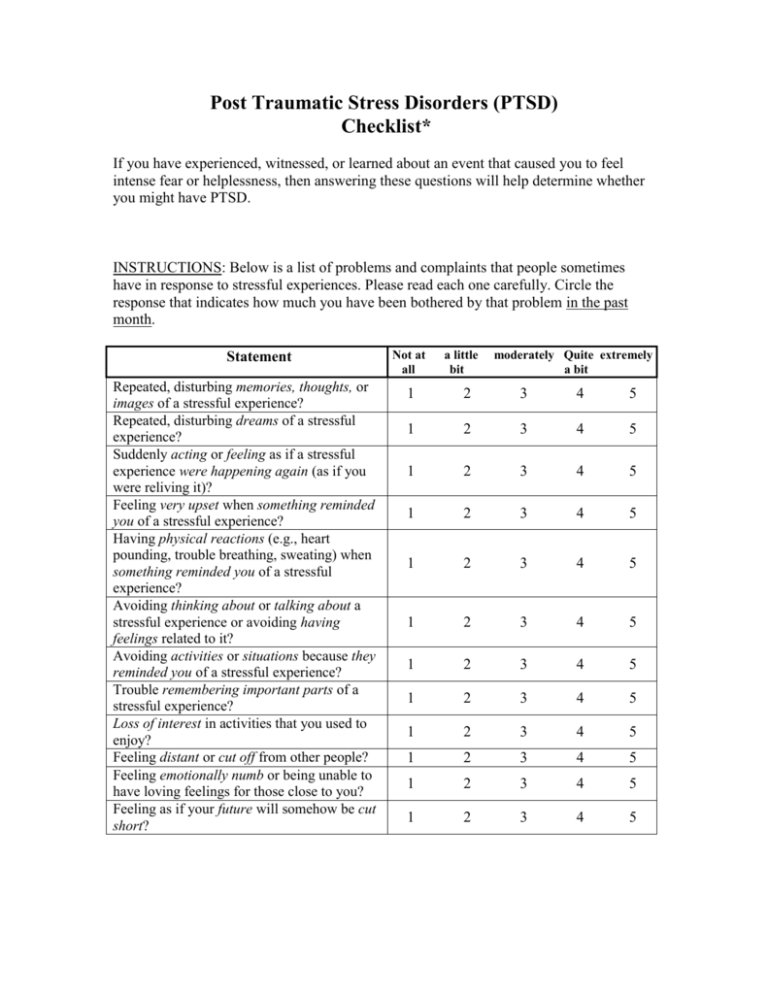
Post Traumatic Stress Disorders (PTSD) Checklist* If you have experienced, witnessed, or learned about an event that caused you to feel intense fear or helplessness, then answering these questions will help determine whether you might have PTSD. INSTRUCTIONS: Below is a list of problems and complaints that people sometimes have in response to stressful experiences. Please read each one carefully. Circle the response that indicates how much you have been bothered by that problem in the past month. Statement Repeated, disturbing memories, thoughts, or images of a stressful experience? Repeated, disturbing dreams of a stressful experience? Suddenly acting or feeling as if a stressful experience were happening again (as if you were reliving it)? Feeling very upset when something reminded you of a stressful experience? Having physical reactions (e.g., heart pounding, trouble breathing, sweating) when something reminded you of a stressful experience? Avoiding thinking about or talking about a stressful experience or avoiding having feelings related to it? Avoiding activities or situations because they reminded you of a stressful experience? Trouble remembering important parts of a stressful experience? Loss of interest in activities that you used to enjoy? Feeling distant or cut off from other people? Feeling emotionally numb or being unable to have loving feelings for those close to you? Feeling as if your future will somehow be cut short? Not at all a little bit moderately Quite extremely a bit 1 2 3 4 5 1 2 3 4 5 1 2 3 4 5 1 2 3 4 5 1 2 3 4 5 1 2 3 4 5 1 2 3 4 5 1 2 3 4 5 1 2 3 4 5 1 2 3 4 5 1 2 3 4 5 1 2 3 4 5 Statement Trouble falling or staying asleep? Feeling irritable or having angry outbursts? Having difficulty concentrating? Being "super-alert" or watchful or on guard? Feeling jumpy or easily startled? Not at all 1 1 1 1 1 a little bit 2 2 2 2 2 moderately Quite extremely a bit 3 3 3 3 3 4 4 4 4 4 5 5 5 5 5 Scoring: Total up the score by adding together the numbers that correspond with the responses you circled. Possible scores range from 17 to 85. Research has identified cut-off scores that indicate possible PTSD, ranging from 44 to 50, depending on the type of trauma experienced. If you scored 44 or higher it is likely that you may have PTSD. Scores approaching 40 may indicate partial PTSD. So, if you scored higher than 40 and have not done so already, we strongly recommend that you contact an Archway counselor where you can receive specialized counseling and treatment for trauma-related symptoms. It is important to keep in mind that this self-assessment doesn’t confirm whether or not you have PTSD. Only a trained mental health professional can provide you with a valid diagnosis of any mental health condition. Instead, it can help you determine the nature and extent of your symptoms and whether you might best seek advice from a mental health professional knowledgeable about PTSD. * Created by Weathers, Litz, Huska, and Keane (1994); National Center for PTSD - Behavioral Science Division. This is a government document in the public domain.
